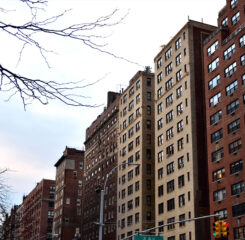In a September 12 letter to leadership at the Department of Housing and Urban Development (HUD), LeadingAge requested “urgent action” on HOTMA implementation. HOTMA stands for the “Housing Opportunity Through Modernization Act,” an affordable housing reform law from 2016, parts of which HUD is implementing this year.
The law requires major changes to the way housing providers handle tenant income calculations and certifications of continued income and eligibility for affordable housing programs. While some changes are intended to streamline processes at affordable housing communities, some changes – including new limits on assets, like savings or other property, in order for a household to qualify for HUD rental assistance – could negatively impact residents currently living in HUD-assisted communities.
LeadingAge’s letter states: “On behalf of our nationwide membership of affordable senior housing providers and the many older adults they serve, we value HUD’s thoughtfulness in implementing HOTMA. However, the current implementation approach is not aligned with congressional intent and will cause harm to residents.”
The letter requests three actions from HUD: Correcting the agency’s interpretation of the enforcement of asset limitations; clarifying exceptions to new asset limitations based on aging-related factors; and delaying certain implementation requirements under HOTMA.
View LeadingAge’s letter here. LeadingAge will keep members updated on implementation guidance from HUD. To access HOTMA training materials from LeadingAge, click here.
Enforcement Discretion and Exceptions to new Asset Limitations
HOTMA establishes new household asset limitations preventing households that own real property “suitable for occupancy,” or assets over $100,000, from receiving rental assistance from HUD. However, the 2016 HOTMA statute clearly indicates that housing providers can establish exceptions or use their own discretion in enforcing the new limits on residents currently served through HUD rental assistance.
Unfortunately, HUD has indicated that the agency will only allow housing providers to provide a six month delay on asset limit enforcement, and will not allow housing providers to use the discretionary authority or to establish the exceptions policies referenced in the law.
“It is crucial that HUD follow statutory language and congressional intent by allowing housing providers to establish policies that would exempt currently served residents from the new asset limits beyond the stated 6-month window, as they would otherwise face eviction,” LeadingAge says in the letter.
LeadingAge’s letter also stresses the importance of allowing aging-related exceptions to asset limit applicability. While HUD’s HOTMA Final Rule allows exceptions to applicability if the household’s real property is not close enough to a place of work or educational institution, LeadingAge is calling on HUD to allow additional exceptions for access to caregivers or for mobility limitations.
The letter states: “In many cases, owned property, while technically habitable, may be located far from the older adult’s support systems, including caregivers or supportive services. In addition, the older adult may no longer be able to drive certain distances or manage the upkeep of the yard or house.
In other words, while an older adult resident’s property may be ‘suitable’ for a resident without certain limitations, the house may not be appropriate for aging. HUD’s implementation guidance for HOTMA should clarify that aging-related limitations be accepted as exceptions to the new asset limitations related to real property.”
Partial Delay to HOTMA Implementation
In February, HUD published a final rule to implement HOTMA with a compliance date of January 1, 2024. However, since then, HUD has failed to provide implementation guidance to housing providers, has not clarified outstanding policy questions about the rule changes, and has not provided updated forms, software, or training for Multifamily Housing providers.
Beginning in September 2023, housing providers began certifications that take effect in January 2024, but without concrete new HUD rules to follow, they are left following outdated rules and will need to make corrections once HUD guidance is released.
LeadingAge is calling on HUD to partially delay the Multifamily Housing compliance requirements for HOTMA – a move that would mirror similar action by HUD for Public Housing Authorities: “[Certifications] corrections add significant time for housing staff, and they may have significant negative impact on residents. We therefore urge HUD to delay the compliance date of certain aspects of HOTMA; this will allow enough time for software updates to TRACS, new forms, and further guidance for housing providers, as well as communication with residents about the coming changes.”
LeadingAge expects an update from HUD soon and will continue to advocate for a smooth transition to HOTMA for Multifamily Housing communities and residents.

 Shutdown Week Three: Impact of Ongoing Closure on Affordable Housing
Shutdown Week Three: Impact of Ongoing Closure on Affordable Housing


